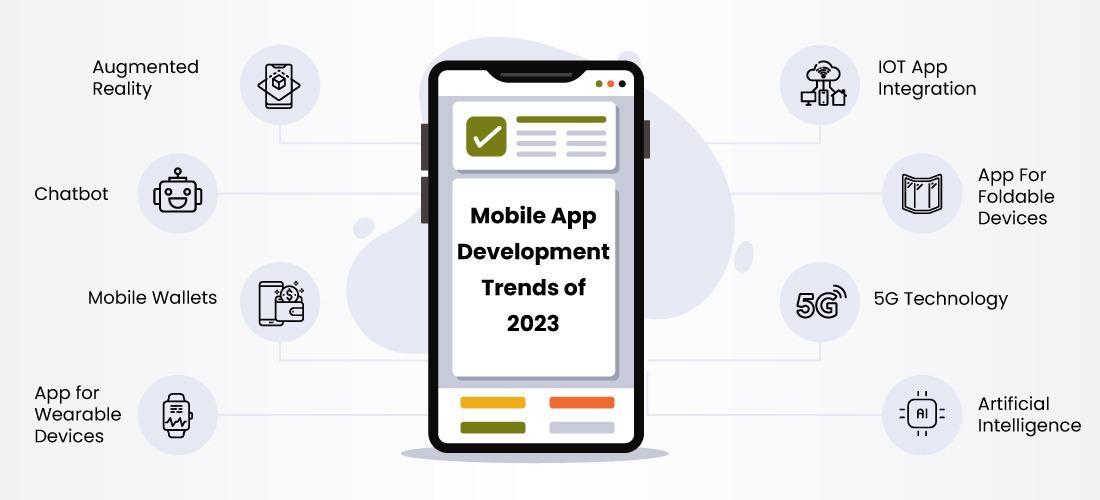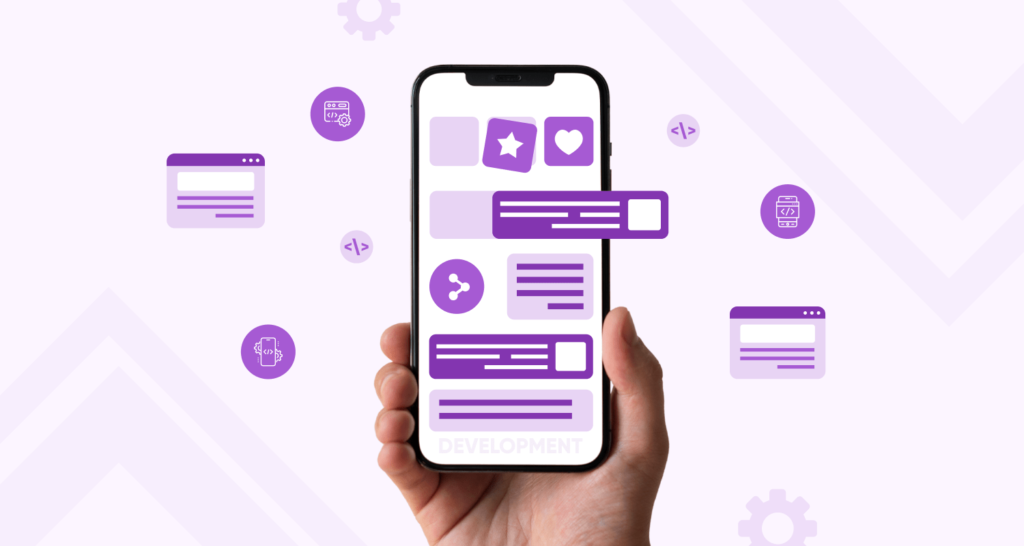
Latest Trends for Mobile App Development in 2023
By Udit Agarwal

The field of mobile app development is constantly evolving, driven by advancements in technology, changing user preferences, and emerging industry trends. As we enter 2023, several key trends are shaping the mobile app development landscape. These trends will revolutionize mobile application interaction, providing new opportunities for businesses and developers. This article will explore the latest trends for mobile app development in 2023.
5G Technology:
With the widespread rollout of 5G networks, mobile app developers can leverage this technology’s high-speed and low-latency capabilities to create more immersive and responsive applications. 5G opens up possibilities for real-time streaming, augmented reality (AR), virtual reality (VR), and other bandwidth-intensive experiences.
Artificial Intelligence (AI) and Machine Learning (ML):
AI and ML remain at the forefront of technological advancements. In mobile app development, AI and ML enhance user experiences through personalization, predictive analytics, and intelligent automation. AI-powered features are becoming increasingly common in mobile apps, from chatbots to voice assistants.
Internet of Things (IoT) Integration:
The IoT ecosystem is expanding, and mobile apps play a vital role in connecting and controlling IoT devices. In 2023, IoT technology will integrate more into mobile apps, enabling efficient management and interaction with smart devices for users.
Progressive Web Apps (PWA):
PWAs offer the best of both worlds – the functionality of a native app and the accessibility of a web app. With PWAs, users can access apps directly from their browsers without installing them. They provide a seamless user experience and reduce development costs by enabling cross-platform compatibility.
Instant Apps:
Instant apps allow users to experience a part of the app’s functionality without installing the application. This trend is gaining traction as it eliminates the barrier of app installation and provides instant access to app features, offering convenience and reducing storage space requirements.
Voice User Interface (VUI):
Voice assistants like Siri, Alexa, and Google Assistant have gained widespread adoption. As a result, integrating voice commands and VUI into mobile apps has become increasingly important. VUI allows users to interact with apps using natural language, enhancing user experiences and enabling hands-free operation.
Augmented Reality (AR) and Virtual Reality (VR):
AR and VR technologies are transforming mobile app engagement across various domains like gaming, entertainment, e-commerce, and education. They provide immersive experiences and limitless possibilities for app development.
Enhanced App Security:
As mobile apps handle sensitive user data, security remains top implementers are implementing advanced security measures such as biometric authentication, encryption, and secure data storage to protect user privacy and build trust.

Blockchain Technology:
Blockchain is no longer limited to cryptocurrencies. Its decentralized and transparent nature makes it a valuable technology for various industries, including mobile app development. Blockchain enables secure transactions, digital identities, and efficient supply chain management, among other applications.
Sustainability and Green App Development:
With increasing environmental concerns, there is a growing demand for sustainable and eco-friendly app development practices. Developers focus on optimizing app performance, reducing energy consumption, and incorporating green initiatives into their development processes.
Bottom Line
In conclusion, the world of mobile app development is evolving rapidly, driven by emerging technologies and changing user expectations. The trends mentioned above highlight the direction the industry is heading in 2023. By staying abreast of these trends, mobile app developers can create innovative and impactful applications that cater to the needs of modern users.